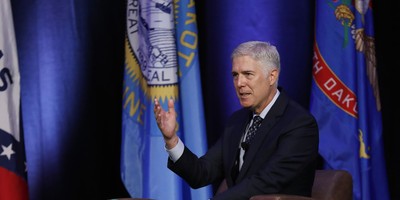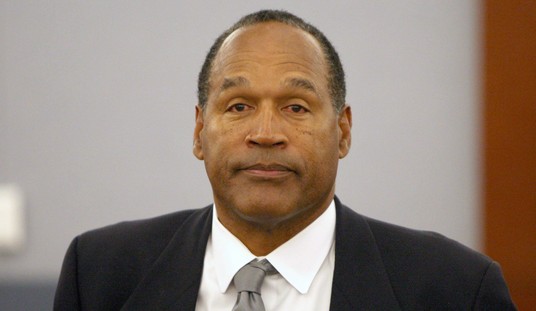In the classic comedy Office Space, the annoying, worthless boss Bill Lumbergh instructs his indifferent employees to ponder this question before acting: “ask yourself, is this good for the company?” Likewise here, regardless of last week’s Supreme Court decision upholding the Affordable Care Act, the question is whether the Act is good for America. Americans expect Mitt Romney, who seeks to manage one of the co-equal branches, to have a compelling, cogent answer, and one that doesn’t depend on the meaning of the word “is.”
In upholding the Act’s individual mandate to purchase health insurance, the Court, through Chief Justice John Roberts, held what no federal court had previously: that even though the individual mandate was invalid under Congress’ Commerce Clause power, it somehow survived as a tax, even though the Act was marketed and passed as containing a penalty, and the word tax nowhere appears in the bill’s language.
Roberts’ opinion was remarkable in that it managed to split conservatives and delight the Left. Some legal commentators and pundits on the left praised Roberts for his statesmanship and concern for the legitimacy of the Court. Obama proclaimed that his “signature domestic achievement” really now was an achievement but crowed that it was not a tax.
In stark contrast, most conservatives ate crow after digesting an opinion they saw as a Souter-esque betrayal. As the Wall Street Journal observed, Chief Justice Roberts created “the only tax in U.S. history that exceeds its own constitutional limits and is meant to execute powers the Court” found invalid. Future Congresses may thus regulate interstate “commerce” by imposing “taxes” whenever individuals fail to heed government’s demands.
Legal conservatives managed to find some good within the bad by cheering the parts of the holding limiting Congress’s power under the Commerce Clause, though whether it actually restrains future Congresses is another matter. Conservative law professor John Yoo says no; liberal law school dean Erwin Chemerinsky says probably not; liberal law professor Pam Karlan says yes.
Recommended
How this happened is a matter of history that conservatives will surely recall next time a Court vacancy occurs. We now (perhaps) know from Court leaks and press reports that Justice Roberts initially cast his vote against the law, then switched his vote, and withstood intense lobbying by Justice Kennedy to change his vote back. A more dispiriting outcome for the Right cannot be imagined. The self-professed “umpire” botched the biggest call of the game, and the country will suffer, unless the political leaders do what Roberts did not and send the Affordable Care Act to the circular file.
Helpfully, Hoover Institution scholar Keith Hennessey has provided a starting point for doing so, and it involves the most reviled word in politics: tax. According to Hennessey, almost four million Americans, none of whom are “rich,” will be subject to the individual mandate’s de facto tax. As he notes, this tax levy violates President Obama’s pledge not to raise taxes on those earning less than $250,000 a year. This should be Mr. Romney’s first talking point for the next five months.
Beyond the specifics of the law’s taxation scheme is the broader political strategy to undo it. As Roberts wrote, it is up to the electorate to remedy what he would not. This is talking point #2. Here too Hennessey has provided a roadmap: should Republicans capture the Senate, they can use the same procedure to undo Obamacare that Democrats used to pass it: reconciliation, which only requires 51 Senate votes.
And, talking point #3 for Mr. Romney: three reliably conservative votes on the Court are insufficient. Justices Scalia, Thomas, and Alito need a fourth comrade in arms, especially since Justice Scalia is 75 and the Court’s oldest justice. Justice Kennedy is a swing vote, and Chief Justice Roberts has shown himself to either be susceptible to Beltway influence, or more concerned about the perceived “legitimacy” of the Court in the eyes of the legal Left. Mr. Romney should promise to appoint justices who do not split the constitutional baby and bend to political pressure.
On March 23, 2010, President Obama signed the Affordable Care Act into law. In response to this and other big government outrages, on November 2, 2010, the country sent Washington a message by electing sixty-three additional House Republicans, and a Republican senator to fill Ted Kennedy’s seat. After the Court’s supreme error, it appears that Washington needs to be sent another message this November. That, as Bill Lumbergh would say, is good for the country.
























Join the conversation as a VIP Member